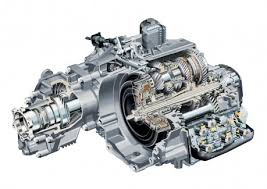Mobile:+86-311-808-126-83
Email:info@ydcastings.com
Exploring Techniques and Benefits of Aluminum Can Casting in Manufacturing
The Process of Aluminum Can Casting A Sustainable Approach to Recycling
Aluminum can casting has emerged as a significant process in the recycling industry, particularly due to the high demand for aluminum products. The lightweight, durable, and corrosion-resistant properties of aluminum make it a preferred choice across various sectors, from packaging to aerospace. The casting of aluminum cans not only ensures efficient use of resources but also contributes to sustainability. This article explores the process, benefits, and impact of aluminum can casting on the environment and the economy.
Understanding Aluminum Can Casting
Aluminum can casting involves transforming recycled aluminum scrap into new aluminum products, particularly cans. The process begins with the collection and sorting of aluminum waste, which can include used cans, manufacturing scraps, and other aluminum products. Once collected, the waste is cleaned and melted in large furnaces, with temperatures reaching approximately 1,300 degrees Fahrenheit (700 degrees Celsius).
After melting, the molten aluminum is poured into molds to create new products. The casting process can take various forms, including gravity casting, low-pressure casting, and die casting. Each method has its advantages and is selected based on the desired product specifications and production efficiency. Gravity casting, for example, is simpler and ideal for creating thicker-walled products, while die casting allows for intricate and precise designs due to the high pressure applied to fill the molds.
The Benefits of Aluminum Can Casting
1. Resource Efficiency Recycling aluminum through casting significantly reduces the need for raw materials. Producing aluminum from bauxite ore is energy-intensive and requires extensive mining, which can deplete natural resources. In contrast, reusing scrap aluminum requires only about 5% of the energy needed to create new aluminum from ore, making casting an energy-efficient alternative.
2. Environmental Impact The recycling of aluminum cans helps reduce greenhouse gas emissions. By minimizing the energy required for production, aluminum casting plays a pivotal role in lowering the carbon footprint associated with manufacturing processes. Additionally, recycling conserves landfill space, as aluminum cans are one of the most commonly disposed of items globally.
aluminum can casting

3. Economic Advantages The aluminum recycling industry contributes significantly to the economy, providing jobs ranging from collection and sorting to recycling and manufacturing. The aluminum can casting sector generates revenue by tapping into the growing demand for recycled products. As both consumers and industries lean towards sustainable practices, the market for recycled aluminum continues to expand.
4. Versatility Aluminum can casting allows for the production of a wide range of products, from simple cans to complex components used in various industries, including automotive and construction. This versatility ensures that recycled aluminum finds utility in many applications, promoting further recycling efforts.
Challenges in Aluminum Can Casting
While the benefits are significant, the aluminum casting process does face challenges. A primary concern is the quality of recycled aluminum. Impurities and contamination can affect the properties of the final products, leading to reduced performance. To mitigate this, the recycling industry continuously invests in better sorting technologies and processes to ensure high-quality scrap metal is recycled.
Moreover, market fluctuations can impact the profitability and sustainability of aluminum recycling. The prices of both aluminum and the costs associated with recycling can vary depending on global demand and economic conditions. Thus, maintaining a stable collection and processing system is crucial for the long-term viability of aluminum can casting.
Conclusion
Aluminum can casting is more than just a manufacturing process; it represents a critical component of modern recycling practices that favor environmental sustainability and economic growth. By recycling aluminum cans into new products, we reduce resource consumption, lower greenhouse gas emissions, and create economic opportunities. As the demand for sustainable practices increases, innovations in aluminum casting and recycling will likely play an essential role in creating a more circular economy, aligning with global goals towards sustainability and environmental stewardship. Emphasizing the importance of recycling and the potential of aluminum casting can lead to a brighter, more sustainable future for generations to come.
-
Impeller Technology That Powers Precision in Pump SystemsNewsMay.22,2025
-
Valve Durability Begins with Quality Cast Iron ComponentsNewsMay.22,2025
-
Performance Cooling with Advanced Automobile Water Pump SolutionsNewsMay.22,2025
-
How Motor Housing and Oil Pans Shape Engine PerformanceNewsMay.22,2025
-
How Metal Castings Drive Modern Manufacturing EfficiencyNewsMay.22,2025
-
Exploring the Engineering Behind Valve Body CastingsNewsMay.22,2025











